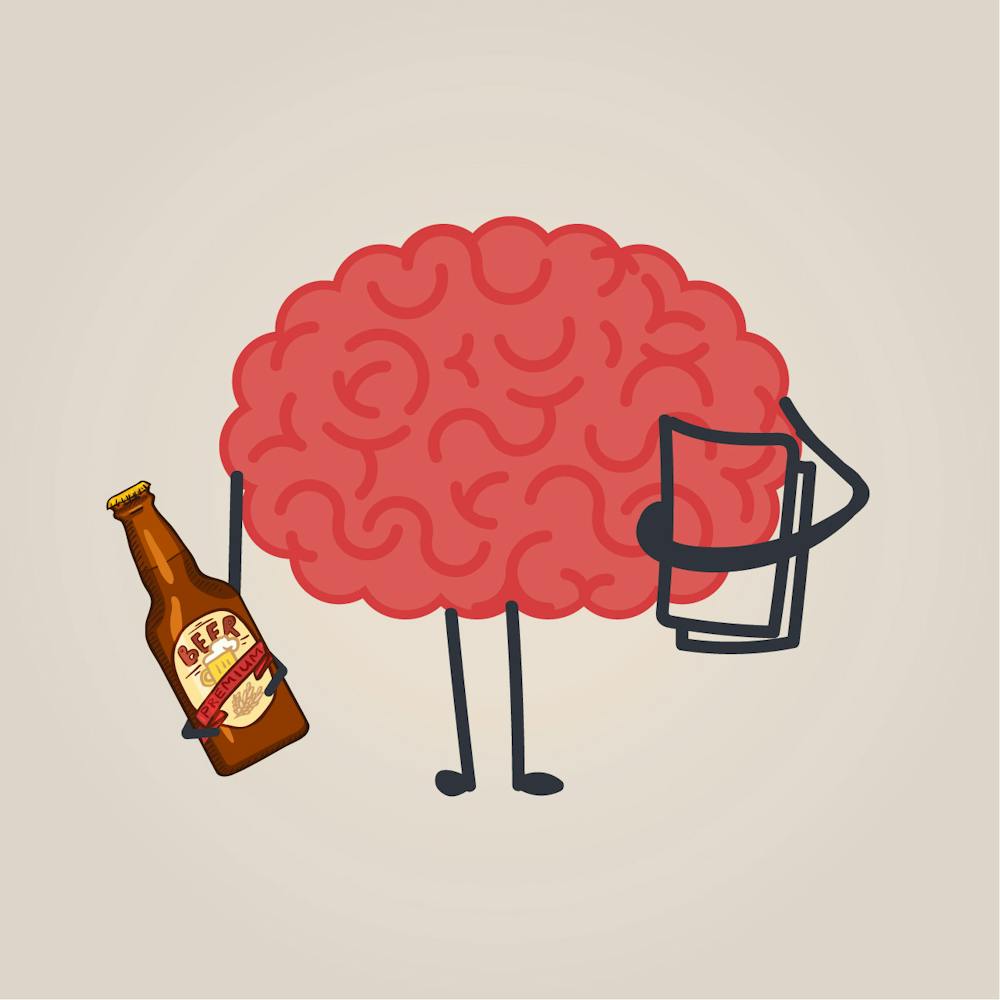“You can’t be an alcoholic until you graduate” is a popular saying among college students, considering they are young, experimenting, and ‘having fun.’ Unfortunately, 18 to 22-year-olds have the highest risk of abusing substances to cope with mental illness, according to recent studies.
Patrick O’Keefe, a licensed substance abuse counselor, shares his experience and knowledge of helping people with substance abuse and mental health illnesses, including students in college.
There is significant research correlational and causational research linking mental illness and addiction. O’Keefe describes, “From my experience, addiction develops from seeking immediate gratification to compensate for ‘something’ missing. That ‘something’ can range from boredom to overcoming stress and other negative emotions.”
Common mental health disorder symptoms may include having trouble regulating the four basic emotions: anger, happiness, sadness, and fear. Having trouble with essential functions like basic hygiene, eating, or sleeping can indicate that something may be wrong and it’s time to seek help. Auburn University provides student counseling, psychological services, and substance abuse assistance through Health Promotion and Wellness Services.
Boredom and stress may affect students’ mental health, causing them to lean toward substance abuse. Still, college students are also exposed to various substances that can lead to addiction in their college careers.
“Powerful drugs can rapidly elevate dopamine neurotransmitters in the brain and deplete pleasure senses, such as crack cocaine can result in depression. Since drugs and alcohol are used to cope, a delusional sense of euphoria, anxiety, and paranoia may also result from addiction,” said O’Keefe.
Mental health disorders that are commonly associated with substance abuse are anxiety and depression. These two disorders have the potential to lead to a variety of abuse through drugs or alcohol, with many people having their own personal “drug of choice.”
People with depression or anxiety may choose to cope using alcohol, marijuana, or other drugs to relieve their stress, but according to O’Keefe, “it depends on the individual, not the mental illness diagnosis. “
O’Keefe has worked with military veterans diagnosed with post-traumatic stress disorder (also known as PTSD). Some veterans preferred marijuana to help relieve anxiety while others preferred alcohol.
College students also possess a higher inclination for substance abuse due to thetransition from adolesce to adult life. Research shows that 18-22 is one of the age ranges where people experience a higher degree of stress, confusion and pressure. Simultaneously, this is also a time when curiosity for ‘partying’ exasperates and the legal drinking age occurs, creating the perfect storm for substance abuse.
Genetics may also play a prominent role in the link between substance abuse and mental illness. Marc Schuckit, M.D. studied a correlation between genetics and a low response to alcohol. Schuckit suggested that people can inherit a low response, meaning they can consume large amounts of alcohol before reaching a high intoxication level from an early age.
“Schuchits’s research indicated that 60% of people with a low response to alcohol developed an alcohol use disorder. From my experience, people with personality traits such as impatience, boredom, anxiety, or paranoia tend to develop a desire to medicate emotions, and addiction can develop,” Okeefe said.
This number is highest in undergraduate students, where low self-esteem, anxiety from academic pressure and isolation run rampant. Students seeking immediate gratification to reduce these issues may turn to the collegiate party scene, eventually blurring the line between what’s considered fun and a coping mechanism.
Mental health is important to take care of, especially as a college student. Every student has a different transition path and stressors, and it is crucial to understand the right time to seek help.
This story was featured in our most recent print edition, in stands and online now.
Do you like this story? The Plainsman doesn't accept money from tuition or student fees, and we don't charge a subscription fee. But you can donate to support The Plainsman.

Jolie Bishop, culture editor for The Auburn Plainsman is a senior in marketing with a minor in journalism. She has been with The Plainsman since summer of 2022.





